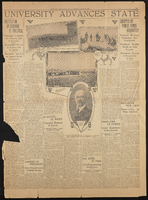Search the Special Collections and Archives Portal
Search Results

Nathalie Martinez oral history interview: transcript
Date
Archival Collection
Description
Oral history interview with Nathalie Martinez conducted by Rodrigo Vazquez and Barbara Tabach on June 24, 2021 for Latinx Voices of Southern Nevada Oral History Project. Nathalie Martinez, one of the original members of the Latinx Voices project team, dicusses her personal history and the history of her parents who immigrated to the United States from Colombia and El Salvador. She shares her educational background and experiences working as an interviewer for the Latinx Voices project before its culmination and her graduation in 2021. Nathalie also talks about her work on the project's podcast and her work linguistically translating the interviews from Spanish to English.
Text
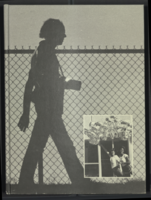
Epilogue: UNLV Yearbook, 1982
Date
Description
Yearbook main highlights: schools and departments; detailed lists with names and headshots of faculty, administration and students; variety of photos from activities, festivals, campus life, and buildings; campus organizations such as sororities, fraternities and councils; beauty contest winners; college sports and featured athletes; and printed advertisements of local businesses; Institution name: University of Nevada, Las Vegas
Mixed Content
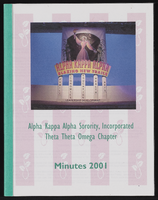
Alpha Kappa Alpha Sorority, Theta Theta Omega Chapter meeting minutes (redacted)
Date
Archival Collection
Description
From the Alpha Kappa Alpha Sorority, Incorporated, Theta Theta Omega Chapter Records (MS-01014) -- Chapter records file.
Text
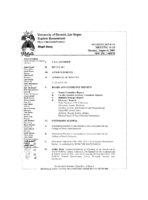
Meeting minutes for Consolidated Student Senate, University of Nevada, Las Vegas, August 06, 2001
Date
Archival Collection
Description
Text

Congregation Ner Tamid roundtable oral history interview: transcript
Date
Archival Collection
Description
Oral history interview with the Congregation Ner Tamid roundtable conducted by Barbara Tabach on September 21, 2016 for the Southern Nevada Jewish Heritage Project. In this interview, Rabbi Sanford Akselrad and five members of the congregation discuss the founding of Congregation Ner Tamid, the first reform synagogue in Las Vegas, Nevada, in 1974. They go into detail on how the synagogue was formed, the building-hopping they did until they built their current structure, and the funding it took to get to that point. The interviewees reveal a few donors, such as Morris Dalitz and Frank Sinatra, who helped to build their synagogue and school. The interview ends with meaningful stories and memories the members have relating to Congregation Ner Tamid.
Text
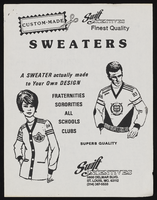
Sweater order forms
Date
Archival Collection
Description
From the Alpha Kappa Alpha Sorority, Incorporated, Theta Theta Omega Chapter Records (MS-01014) -- Chapter records file.
Text
Jesus Jara (Clark County School District, Superintendent) oral history interview conducted by Magdalena Martinez and Elia Del Carmen Solano-Patricio: transcript
Date
Archival Collection
Description
From the Lincy Institute "Perspectives from the COVID-19 Pandemic" Oral History Project (MS-01178) -- Education sector interviews file.
Text
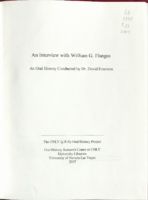
Transcript of interview with William G. Flangas by Dr. David Emerson, September 27, 2006
Date
Archival Collection
Description
Text
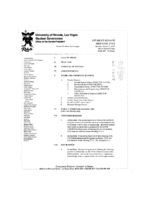
Meeting minutes for Consolidated Student Senate University of Nevada, Las Vegas, March 17, 1997
Date
Archival Collection
Description
Text

